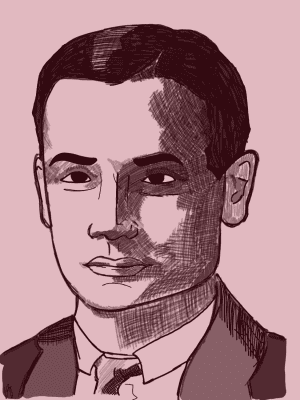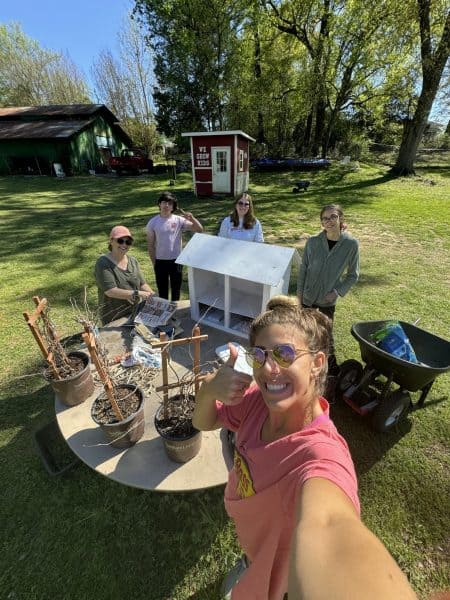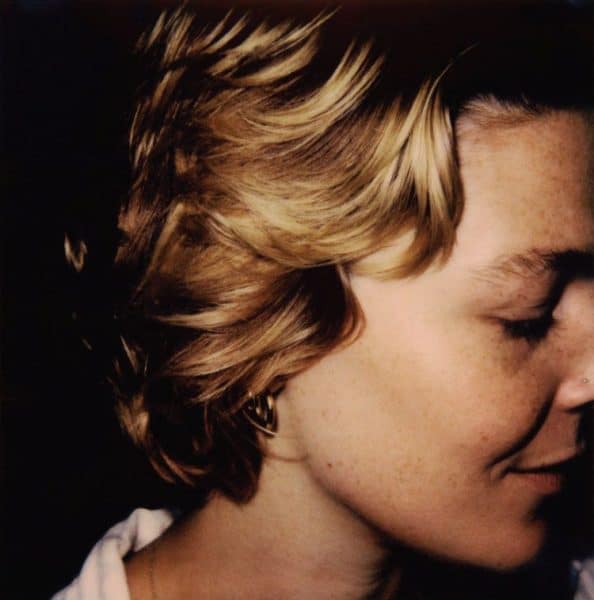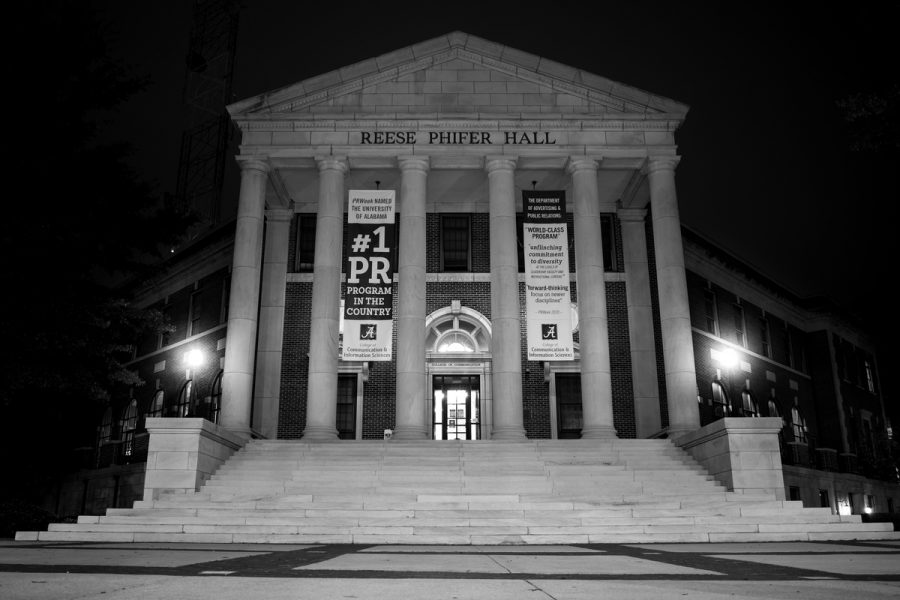Clarence the Friendly Ghost: Finding the spooky side of Reese Phifer
Reese Phifer regulars say that the building’s infamous ghost is as kind as they come.
Read more from the culture desk:
CW / Davida Franklin
Reese Phifer Hall, with its trademark dome and a terrace perfect for people-watching, distinguishes itself from neighboring buildings with more than its architectural features. It’s also the only non-residence hall building to have a full-time resident: the ghost of Clarence Cason.

In 1928, Cason, an Alabama native and university graduate, returned to his alma mater as a professor and established journalist. He worked to develop the journalism department and began collecting essays for a novel about the South.
In 1935, Cason was set to publish his small book of essays that detailed the slow comforts of Southern life and openly criticized racism and the practice of lynching. In his book, entitled 90 Degrees in the Shade, Cason surmised that the climate of the South was responsible for southerners’ slow pace of life and their refusal to “catch up” with the world around them socially.
Days before the book’s release in that same year, Cason took his own life in his office at Reese Phifer with no explanation. Many have said Cason committed this act out of fear of how his fellow southerners would react to his attitude towards racism. The book still went on to be published and has since been republished by the University in 1983.
Cason’s office is still in use and it is said among students in the College of Communications that his spirit haunts the office and the halls of Reese Phifer.
Trey Dickey, a junior majoring in creative media, said he has heard footsteps with no one around and felt random cold spots in the halls. He’s sort of our guardian ghost. — Dianne Bragg
“I have also heard that there are times when people will be in the rotunda and feel someone poke them but no one is there,” Dickey said. “He is a nice ghost and just likes to mess with the students because he loves us.”
Cason had a reputation in life for being a kind man who loved his students. He believed in democracy in the classroom and reportedly wanted his students to succeed. In 1935, after his passing, the University dedicated the yearbook to him and his work with students.
Dianne Bragg, an associate professor in the Department of Journalism and Creative Media had her own encounter with the spectre in 2013 after years of hearing accounts from students.
“I was finishing up a really big project and going through what I would call a difficult time in my life,” Bragg said. “I had been coming in on weekends early, so one Sunday at around 6:30 [a.m.], I came in, upset and having a bad morning. While I’m sitting at my computer, I hear the heavy door to the copy room connected to my office open and shut, and then I hear the copy machine start.”
Bragg was surprised that anyone else would come in that early on a Sunday and even more surprised when she went to say hello and found the room empty.
“This was strange because there were no rooms near and no one had had time to get to the other end of the hall,” Bragg said. “I suddenly had this sensation that someone was there, and at the same time I got the feeling that I was not alone, but in a good way. I believe it was Clarence Cason, and it seemed that he was telling me things were going to be okay and I was going to get through this.”
Bragg also said Jennifer Greer, the chair of the department at the time, had described similar experiences in Reese Phifer, like hearing whistling in the halls late at night. Greer said to Bragg that the experience was a feeling of someone being with you, but in a comforting way.
“It’s almost as if he walks the halls to help students and faculty who are struggling,” Bragg said. “He’s sort of our guardian ghost.”
Whether or not Cason lives on in the spectral realm, his memory is kept alive within his writings and the Clarence Cason award, an annual award given to a writer who “has made a critical contribution to journalism in the South.”
Editor’s Note: A previous version of this story misstated the first name of the former journalism chair. “Judy Greer” has been corrected to “Jennifer Greer.”











